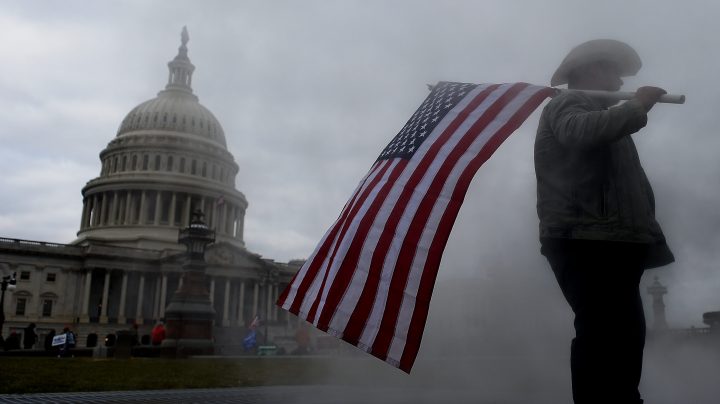
Why the insurrection at the Capitol was an economically significant moment
Why the insurrection at the Capitol was an economically significant moment

Back in March, we assembled a group of people who study economic history to help us put the crisis we’re living through into historical context and help us understand where the economy was headed. As the pandemic continued, we checked in with them a few times to talk about where things stood.
With coronavirus cases surging, the House preparing to impeach the president following an insurrection at the Capitol and a new administration set to take office, we got them back on the phone.
“This moment is absolutely historic,” said Eric Hilt, a professor of economic history at Wellesley College. “This is completely unprecedented,” said Carola Frydman, a professor of finance at Northwestern University who studies financial history. “It’s just so surreal to be stuck at home in a pandemic and have a sedition at our doorstep,” said Kathleen Day, a lecturer at Johns Hopkins University and author of the book “Broken Bargain: Bankers, Bailouts, and the Struggle to Tame Wall Street.” “The economic recovery that we were experiencing in the third quarter seems to have slowed,” Hilt said. Friday’s jobs report from the Labor Department showed the economy lost 140,000 jobs in December, the first monthly decline since April.
“The fact that we’re seeing the unemployment rate stagnate, that’s a worry,” Frydman said. “There’s also this phenomenon where people are saving more because people are worried,” said Day.
In April, with strict lockdown measures in place across most of the country, the U.S. personal saving rate spiked to an unprecedented 33.7%. It has since fallen but remains well above historical trends.
“It’s not just that we cannot go out and consume, it’s also that we don’t know whether our jobs are going to be there, and therefore we save more,” Frydman said. “And firms do the same. When there is uncertainty, firms have an incentive not to invest, not to hire, not to expand new projects, because they don’t know what’s going to happen.”
Hilt said that in the longer term, the fact that many Americans have accumulated more savings this year could mean the economy will bounce back quickly once the coronavirus is under control. “I think that if people felt comfortable going out and spending again, they’d be in a good position to do so.”
Hilt, Day and Frydman said the ongoing vaccine rollout is another reason for optimism. Though problems with distribution persist, the Centers for Disease Control said 11 million people had gotten their first dose as of Thursday.
“We have a new set of people coming in who, whether you agree with them politically or not, most people are rallying around them as we’re finally getting some adults back in the room,” Day said. “From my perspective, most importantly, the president-elect and the [Federal Reserve] have indicated that they do not want to repeat the mistakes that were made after 2008,” said Hilt.
After the Great Recession, Congress and the Obama administration cut back on stimulus before the recovery was far enough along, and it wound up being the slowest on record.
“With regard to the attack on Congress last Wednesday, I don’t think it ever realistically had a chance of succeeding in the sense that I don’t think there was any realistic outcome that would have led to [Donald] Trump continuing as president for another term,” Hilt said. “That doesn’t mean that it’s not harmful to the economy in the long-run sense.”
“We have often lost sight of the fact that our biggest and most successful export is not capitalism, but is democracy,” Day said.
“I grew up in Argentina,” said Frydman. “One insight you get from growing up in a much less stable country is that institutions are extremely hard to build, and extremely easy to destroy. So that is why I think we’re at a key moment in history. This is the moment in which we can decide whether collectively we appreciate the institutions that we have, and we defend democracy, the electoral process, the separation of powers, or we don’t.”
“If we can’t trust our political institutions, if the threat of violence is ever-present, if democratic legitimacy comes under threat, I think it’s likely that economic policymaking will not be able to function, or at least not function as well as it could,” Hilt said.
“Restoration of trust in democracy and an effective response to the pandemic are key,” said Day. “Without those two things, the economy’s screwed.”
There’s a lot happening in the world. Through it all, Marketplace is here for you.
You rely on Marketplace to break down the world’s events and tell you how it affects you in a fact-based, approachable way. We rely on your financial support to keep making that possible.
Your donation today powers the independent journalism that you rely on. For just $5/month, you can help sustain Marketplace so we can keep reporting on the things that matter to you.


















